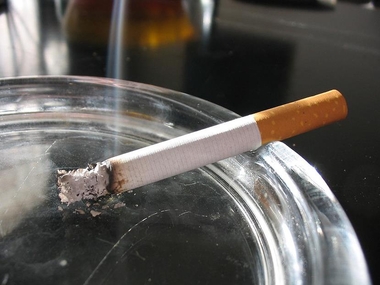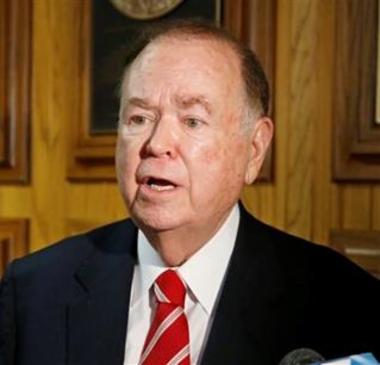State ballot questions up for a vote November 8 in KS, MO, AR, OK

Staff Report
More than votes for President, Vice-President, Senators and House members are on the general election ballot this year. Four of the states in The Gayly’sregion have from one to seven measures for voters to approve or reject. Some are controversial, and some are not.
Arkansas
Issue 1 – The Arkansas Increase in Length of Term in Office for Some County Officials Amendment to the state constitution. A "yes" vote is a vote in favor of increasing the term lengths for elected county judges, county court clerks, and county surveyors from two years to four years and prohibiting certain elected county officials from being appointed or elected to a different civil office during their term.
Issue 2 – An amendment that would let Arkansas governors keep their regular political authority when out of the state. A “Yes” vote approves this change; a “No” vote keeps the current practice where the Lt. Governor takes over when the governor is out of state.
Issue 3 – An amendment to remove the current cap of $250 million on bond issues for private development. A “Yes” vote would remove the cap for these types of bonds, a “No” would keep the cap. Supporters say removing the cap would allow the state to compete for larger projects.
Issue 4 – An amendment to place a cap on Medical Malpractice Attorney Fees. There is currently no cap on contingency fees. The amendment also effectively limits non-economic damages in medical malpractice suits to $250,000. Supporters say the limits would serve to reduce medical malpractice premiums. Those opposed say it would take away “fundamental rights” of Arkansans, and that it leaves too many opportunities for nursing homes to neglect residents and get away with it.
Issue 5 – Three new casinos Amendment. A “Yes” vote would allow three casinos to operate: one in Boone County, one in Miller County, and one in Washington County.
Issue 6 – The Arkansas Medical Marijuana Amendment. A "Yes" vote supports this proposal to legalize medical marijuana, create a Medical Marijuana Commission, and place no limit on the cost for patient card fees. A "No" vote opposes this proposal to legalize medical marijuana.
Issue 7 – The Medical Cannabis Statute. A "Yes" vote supports this proposal to legalize medical marijuana and putting the Arkansas Department of Health in charge of implementing the program. A "No" vote opposes this proposal to legalize medical marijuana.
Resolving the conflict between Issues 6 and 7: An initiated constitutional amendment called Arkansas Medical Marijuana, Issue 6, which is also designed to legalize medical marijuana, is also on the November 2016 ballot. If both initiatives receive majority approval, the one with the most "Yes" votes will supersede the other.
Kansas
Only one ballot measure was certified for the Kansas ballot. State law does not allow for initiative or referendum petitions, a major cause of ballot questions in most states.
The Kansas measure is The Kansas Right to Hunt and Fish Amendment. The measure is a legislatively referred constitutional amendment, and would ensure the right to hunt, fish, and trap wildlife in the state of Kansas.
Missouri
Five constitutional amendments and one proposition are on the Missouri ballot.
Constitutional Amendment 1 would renew the existing sales and use tax of 0.1 percent for 10 years.
Constitutional Amendment 2 would establish limits on campaign contributions to candidates for state or judicial office. It establishes a limit of $2,600 for contributions to campaigns for most state offices, $25,000 to a political party. This amendment also requires corporations or labor organizations to meet certain requirements in order to make such contributions.
Constitutional Amendment 3 would increase the taxes on cigarette packs to 60 cents by 2020.

Constitutional Amendment 4 would prohibit a new state sales or use tax on any service or activity that was not subject to a sales or use tax as of January 1, 2015.
Constitutional Amendment 6 would empower the state government to require the presentation of voter IDs at public elections for the purpose of identifying and proving national and state citizenship. Opponents of the amendment say it would turn people away at polling sites, and minorities would be disproportionately affected.
Proposition A would increase taxes on cigarettes and other tobacco products a total of 23 cents per pack by 2021.
Oklahoma
Oklahoma has seven state questions on the ballot, but the ballot does not include a widely anticipated question on approving medical marijuana. The group circulating an initiative petition got enough signatures, and turned it in on time, but bureaucratic foot dragging delayed the measure enough that it will not be on the ballot in 2016. If it clears all the remaining legal requirements, it could be on the ballot in 2018.
State Question 776 was designed to assert that all methods of execution shall be constitutionally allowed, unless prohibited by the United States Constitution, and designated statutorily by the legislature. The measure is an attempt to overcome the widespread difficulty of obtaining lethal injection drugs.
State Question 777 was designed to establish a constitutional guarantee for farmers and ranchers to engage in farming and ranching practices. Supporters say it will protect farmers and ranchers from burdensome environmental regulations. Opponents, led by former state Attorney General Drew Edmondson, say it would take away the ability to limit chemical additives to feed, growth hormones and genetic modifications. Edmondson says, “I can understand why they want to be free from scrutiny and regulation, but I cannot understand why we should let them.”

State Question 779 was designed to increase the state sales tax by one percent to generate revenue for education funding. Supporters, led by University of Oklahoma President David Boren, say it would produce $615 million a year to give teachers a raise. The state’s teachers have not had a raise in eight years. Opponents say the measure will increase Oklahoma’s sales tax to the highest in the nation.
State Question 780 was designed to reclassify certain property offenses and simple drug possession as misdemeanor crimes. The crimes affected are currently felonies.
State Question 781 was designed to use money saved by reclassifying certain property and drug crimes as misdemeanors outlined in State Question 780 to fund rehabilitative programs. A "yes" vote supports this proposal to use money saved by reclassifying certain property and drug crimes as misdemeanors, as outlined in the Criminal Justice System Reform Initiative, State Question 780, to fund rehabilitative programs, including substance abuse and mental health treatment programs. It would only become effective if SQ 780 was also approved.
State Question 790 was designed to repeal Section 5 of Article 2 of the Oklahoma Constitution, which prohibits public money from being spent for religious purposes. The measure is a reaction to the state Supreme Court’s ruling that a monument with the Ten Commandments installed on the capitol grounds was unconstitutional, and forced its removal. Supporters say the court’s ruling made Oklahoma hostile to religion. Opponents say it will simply lead to another round of lawsuits over the Ten Commandments statue and others that may have religious content.
State Question 792 was designed to allow grocery stores and convenience stores to sell full-strength beer and wine. Liquor stores would also gain the ability to sell cold beer, which they cannot currently do, and sell other items, such as corkscrews and ice.
Texas
The Texas legislature did not meet this year, so there were no questions placed on the ballot.
Copyright 2016 The Gayly – October 22, 2016 @ 10:45 a.m.





